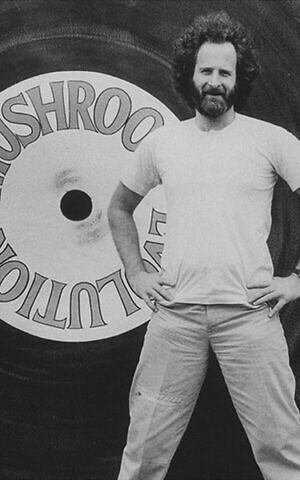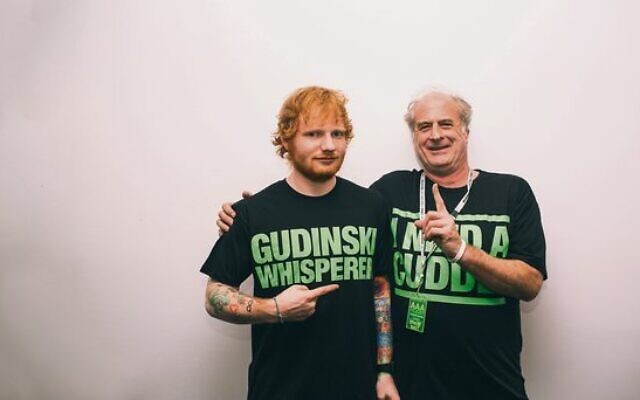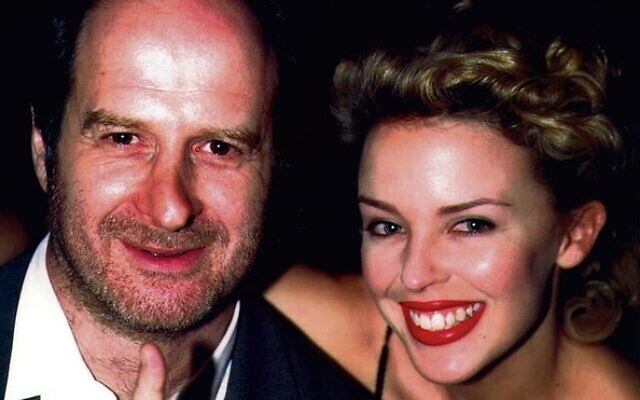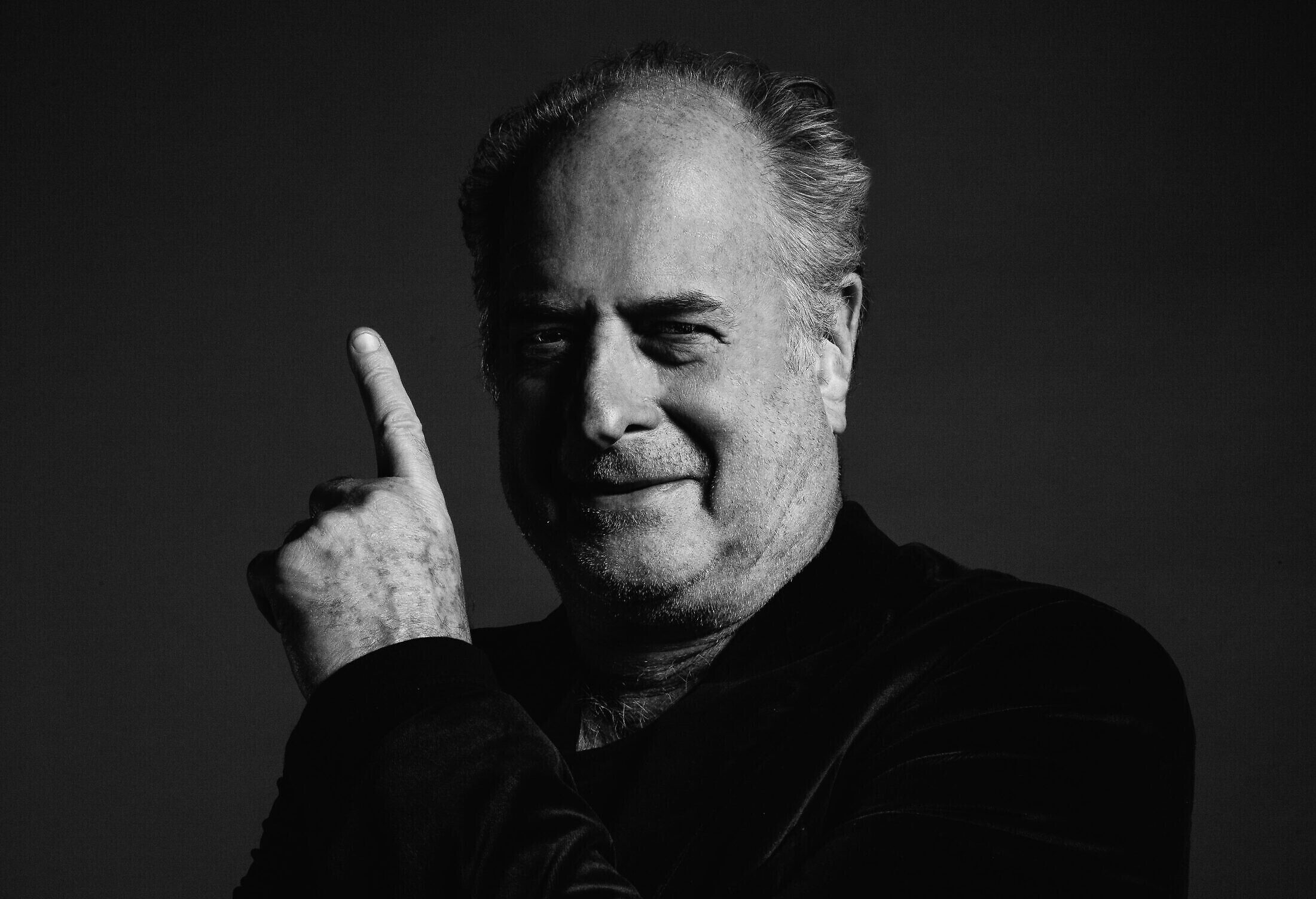Michael Gudinski wasn’t musical. He couldn’t sing or play. He wasn’t a songwriter. But he understood music. He understood showbusiness. And he understood how to make an artist believe in themselves, and their act, and turn them into a success story.
Major artists have exceptionally kind words to say about the controversial head of Mushroom Records. Those relationships were due to Gudinski himself, and his innate ability to forge profoundly personal dealings with every artist he worked with. Artists like Kylie Minogue, Bruce Springsteen, Sting, Jimmy Barnes and Ed Sheeran among many others.
This is explored in the new documentary Ego: The Michael Gudinski Story, directed by Paul Goldman.
“Ed is essentially 40 years younger than Michael, and every time Ed speaks about him, it’s like he’s talking about his best friend,” Goldman told The AJN ahead of the documentary’s release.
“There’s no filter there, it’s just ‘Michael is one of the most important people in my life, who gave me the courage to do what I wanted to do in a time when I was full of self-doubt’. I think that was one of Michael’s greatest attributes – setting that self-belief.”
Sheeran was so appreciative of Gudinski that he dedicated his album = [Equals] to the music promoter, penning his haunting song, Visiting Hours, during the two weeks he was in hotel quarantine when he flew to Australia for Gudinski’s state memorial service.
The relationship between Gudinski and Sheeran, while unique, is indicative of how Gudinski treated the artists he worked with.

While Gudinski had a huge impact on the Australian scene, what many people don’t know is that he also had a huge footprint internationally. He was enormously respected by the artists that he toured.
Goldman is, of course, talking about the likes of Taylor Swift and Sheeran, describing the relationships as “deep”.
“They were never just transactional,” he said.
Goldman, who met Gudinski while he was in film school and described their relationship as “feisty” yet respectful, explained that the idea for the documentary came about from Gudinski himself, as he looked to celebrate Mushroom’s 50th anniversary.
While Goldman was reluctant to take the project on, he’s now pretty glad he did.
“I wanted to ascertain how much Michael was going to interfere with control. I wanted to tell the story as I saw it. Michael and I had many screaming matches, I was thrown out of his office quite a few times,” he laughed.
Ultimately, he agreed to sign on with the project to begin just as COVID hit. The team hit pause. And as lockdowns began to ease, they allocated a week of interviews with Gudinski.
But then, Gudinski passed away.
“Michael agreed [to the interviews] because he saw them as an opportunity to set the record straight, and to face some things that he hadn’t been afforded the opportunity to face,” Goldman said, explaining that while they were never able to interview Gudinski directly for the documentary, they were blessed with thousands upon thousands of hours of archival footage and audio.

“The thing about Michael is that from the first day he started Mushroom, he loved the spotlight and the limelight,” Goldman said.
“He was outspoken, always a great advocate for both the Australian music industry and the Australian film industry. There’s this incredible archive. Up until the very last moment, we were still finding footage of interviews Michael had done somewhere, at some time. It was mostly on film, but there was an endless number of audio interviews too.”
According to Goldman, that became the backbone of the documentary.
“We always wanted Michael’s voice to be very strong in there. We were lucky that we had that archive. But it’s an enormous regret of mine, and should be for everyone, that we didn’t get to do that interview [with him].”
So, did Gudinski’s passing ultimately change the way the documentary was made? Of course. Did it change the way people spoke about the “father of the Australian music industry”. Most definitely.
“People are reluctant to speak ill of the dead,” Goldman remarked. “Remember, Michael only died a couple of years ago. Perhaps if we’d made the documentary in 10 years’ time, people may have spoken otherwise. I think there were people who were cautious. Some people certainly promised to get in front of the camera and take a full-blooded swing at Michael. Michael had his enemies, people who saw things very differently.”
But, as Goldman attested to when someone passes away, people sometimes change their tune.
“I think when Michael passed away, it gave people pause to reflect on the legacy and the stupendous contributions that he made. I think that’s a very difficult thing to ruminate and reflect upon if someone’s still alive.”
According to Goldman, towards the end of his life, and perhaps due to COVID, Gudinski was trying to make peace with his faith again. It’s well-known that Gudinski was Jewish and had struggled with his faith due to his family heritage.
He was born into a middle-class Jewish family and while he never knew the full extent of what happened to his family, there were whispers over the course of his life. For example, their mother had smuggled a sister to safety, who was then captured and shot.
Gudinski’s career was also tinged with a bit of disapproval from his parents – his father in particular – whom he had to convince that producing records and helping artists find their voice was a real job.
Goldman mused about the weight that was often on Gudinski’s shoulders, being the eldest son in a Jewish family.
“Michael clearly had a very complex relationship with his father,” Goldman said. “But he seemed to be rediscovering his faith in a very quiet, undemonstrative way, which was unlike Michael. He was loud, proud, old and rude about those things. But I think quietly, there were some insights that were afforded him, and he was making his way.”
Goldman acknowledges that it felt too personal to share this in the documentary.

So, what would Gudinski think about the documentary?
“I think he would have gotten an enormous kick out of the fact that the film premiered at the Melbourne Film Festival,” Goldman said.
“Michael was a very proud Melburnian, but more than that, he was very proud of the Australian industry. There’s no one who’s a stronger advocate.”
But ultimately, Goldman knows that in his own special way, Gudinski still had a big say in the way the documentary panned out.
“I always had a sense while I was making the film that Michael was looking over my shoulder.”
Ego: The Michael Gudinski Story is now showing in cinemas across Australia.


comments